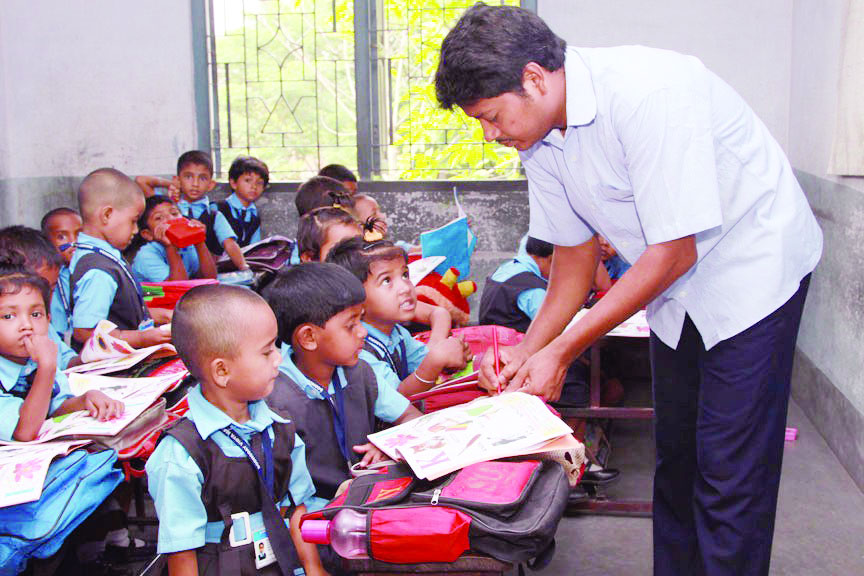They must find solutions to the problems plaguing rural education and pave the way for an educated India, says Abhishek Dubey
An entrepreneur is someone who sees a specific issue in his community and comes up with a new idea or business, usually with the purpose of resolving it, ultimately leading to his own benefits and profits. But truth be told, their impact is very vast and significantly important to society. A social entrepreneur, unlike a business entrepreneur (who most likely tend to CSR), resort to innovation and willingness to bring solutions that can help resolve the problems of society by building up strong and sustainable organisations that choose to put their mission before profits.
Social entrepreneurship is the process of bringing about social change on a major and more effective scale than a traditional Non-Governmental Organisation (NGO). They tend to make broad-based, long-term changes, instead of small-scale and time-limited changes. There are various ways in which a social entrepreneur can give to society and work for its well-being. Adopting a mission to create and sustain social values, along with continuous innovation, and relentlessly pursuing new opportunities to achieve that mission, without being limited by the resources currently in hand can really bring about a crucial transformation in the current scenario.
Today, as our country struggles with problems including poverty, violence, environmental change, health, education and more, social entrepreneurs can help alleviate these issues by putting those less fortunate on a path towards a worthwhile life. Rather than leaving societal needs to the Government or business sectors only, they can solve the problem by changing the system.
The most important issue that needs to be addressed right away is rural education. Majority of India still lives in villages, and so the topic of rural education is of prime importance. India is facing a huge rural-urban divide when it comes to education. Significant contributions have been made by the Government, social entrepreneurs and various organisations to improve the scenario of education in our country, but even after the wide education expansion in recent years, including infrastructure of schools and enrollment of students, illiteracy rates are still high. Considerable reasons behind this unfortunate output, despite noteworthy investments, are poor quality of teaching, lack of digitisation, non-availability of proper materials, and disinterest of students towards education.
According to various surveys, no matter how many students in rural areas are attending schools, 50-70 per cent of them in Class V are still unable to read a second grade textbook, or solve basic mathematics problems. Government schools, though exist, cannot provide the kind of quality education when compared to private schools. Poverty in the rural areas and inability of schools and urban kids to socially accept the backward children stops them from fulfilling their dreams of doing something great.
Some Government schools are over-packed with students, because of which teachers aren’t able to focus on students and give all of them personal attention. Difficulty for students in understanding English textbooks is another drawback. Quality of education is far powerful than poverty and lack of resources. But that also has been degrading ever since. The focus of the students and teachers is just on passing their exams instead of gaining any valuable knowledge, ultimately leading to the decline in the level of education in India, in spite of many efforts.
The foundation to transform India into a highly literate nation has to be laid down at primary rural levels, so that quality of education from the beginning should be kept up to the mark. Students’ textbooks can be made more interesting by using graphics to explain complicated concepts. Improvement in condition of infrastructure, training the teachers, and providing them with increased salaries should all be a part of development.
The gap between city and village students has to be bridged by understanding the needs of the weaker lot and uplifting them. New methodologies and technologies can be brought into classrooms as a way of teaching, and also to keep up with the modernisation in the digital world. Current age of digital connectivity can help us address many problems in rural schools. Social entrepreneurs can invest in bringing their innovations and expertise to make our rural classrooms more advanced. The problem of shortage of quality teachers and high drop-out rates can be solved by e-learning platforms and smart classrooms.
There are many successful examples of entrepreneurs and organisations, who with their efforts have contributed significantly in bringing about a change and a sense of encouragement in underprivileged children, helping them shape a bright future. Together, social entrepreneurs in association with education superintendents can build a solution around these problems which will resolve the overall issues of rural education and pave the way for a better and educated India.
The writer is the CEO and founder, Muskaan Dreams


























